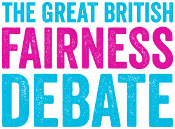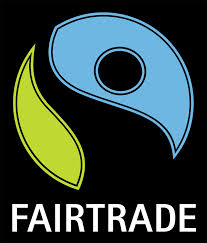The Great British Fairness Debate
 We know that our customers – you – make a conscious effort to buy more ethical products, why else would you be here. We love that you do your bit to be more eco-friendly and by more Fairtrade products to support farmers and workers in developing countries. But as a nation are we really that fair? The Fairtrade Foundation has started the ‘Great British Fairness Debate’ and is challenging us all to take the test, asking if we are really as fair as we think.
We know that our customers – you – make a conscious effort to buy more ethical products, why else would you be here. We love that you do your bit to be more eco-friendly and by more Fairtrade products to support farmers and workers in developing countries. But as a nation are we really that fair? The Fairtrade Foundation has started the ‘Great British Fairness Debate’ and is challenging us all to take the test, asking if we are really as fair as we think.
Here in the office we’ve all taken the test, with answers ranging from as low as 65% to as high as 93% (a pretty impressive score from our Designer Leanne!) but apparently none of us are 100% fair! Well, we can’t all be perfect can we? It’s a really good test to take to measure your fairness level, and see how much you really care about other people, challenge your friends too!

Of course it’s not all complete fun and games, it’s about raising awareness of how Fairtrade products help people in developing countries, for example when you buy Fairtrade coffee the 660,00 small-scale farmers who grew the coffee beans are getting a fair price for their produce. Now Fairtrade are challenging you to make a pledge to give support to all Fairtrade products – and you can even win a prize! You can find our more about The Fairness Story here.
Have you browsed our range of Fairtrade products? Which ones are your favourite to buy?




Annoyingly, I wasn’t happy enough with that 93%! haha. A very interesting quiz, really makes you think. I wonder how different cities across the UK would fare (with people perceiving us in the North as apparently being ‘friendlier’)?
I took the test, but found that in many cases, the answers didn’t include the option I would expect to take. If it was deadline time at work, I’d be working in a team who all stayed behind, or specific people had jobs that required input from others before they could do their task. At month end, we have a process and those people whose job it is to work late work late, the rest come in early in the morning to do their part of the job. Tipping, arriving late at the dentist or giving up a seat on the bus are as much about personal circumstances as fairness and we’d all like to think that we’d be fair. But what if we’d just been held up by a major accident and rebooking an appointment isn’t an option? Sometimes “fair” isn’t the answer.
In the same way, I’d love to buy items that are more ethically produced and traded, but if all the shops stock is cheap rubbish from China, what do we do? Is paying £25 for a t-shirt a viable option for someone on a low income with several children, or are they going to go for the £2.99 one made in dubious conditions? But then, paying £25 for a t-shirt still doesn’t guarantee it was made anywhere other than a Bangladeshi sweat shop.